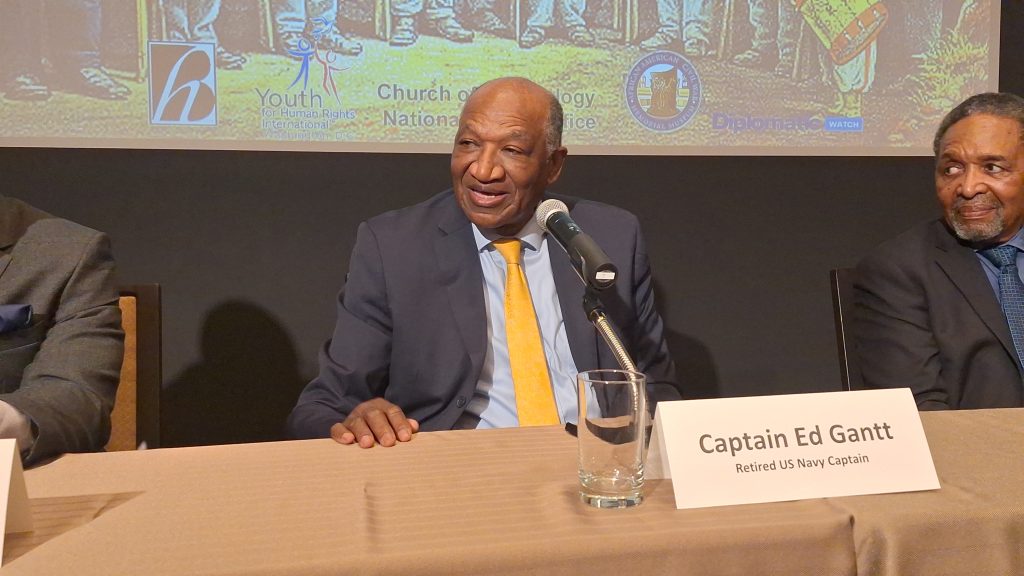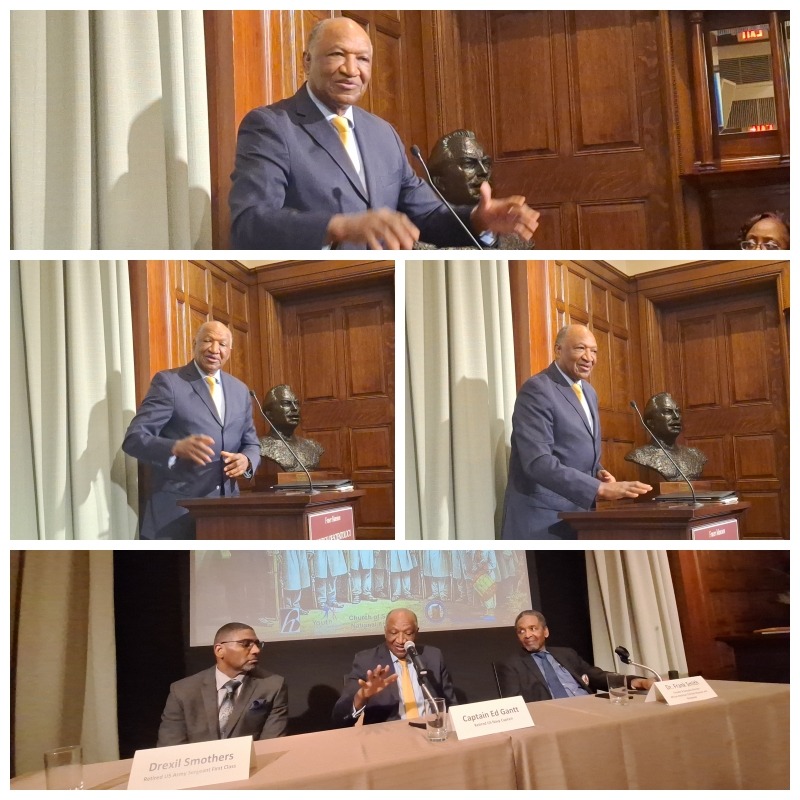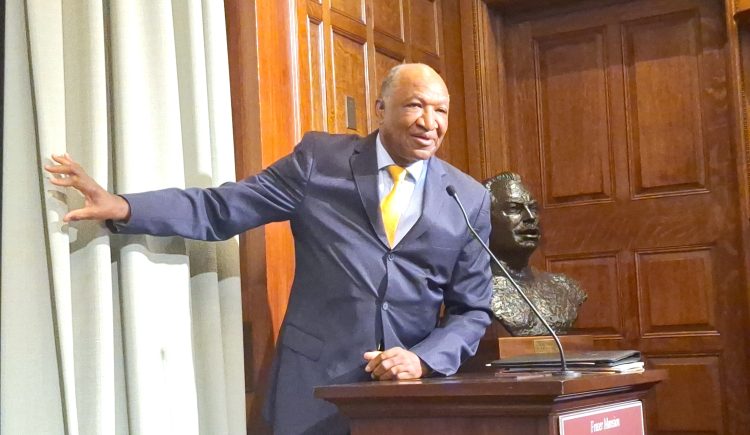During the Black History Month event at the Fraser Mansion last Wednesday, Captain Edward W. Gantt (Ret.) captivated the attendees with an enlightening speech that delved into often neglected chapters of Black history. A distinguished veteran with a remarkable career in both the Army and Navy, Captain Gantt shared insights gleaned from his extensive experience as a Civil War reenactor, shedding light on significant events and contributions by Black Americans throughout history.
Gantt’s address commenced with a humble acknowledgment of sharing the stage with a historical mentor- Dr. Frank Smith, Founder and Executive Director of the African American Civil War Museum and Monument- setting the tone for a journey through pivotal moments often obscured in mainstream narratives. Drawing from his encounters as a Civil War reenactor, he emphasized the valor of the 200,000 Black men who fought to end slavery during the Civil War, a fact often overlooked in American discourse.

With compelling anecdotes and historical revelations, Captain Gantt challenged prevailing perspectives on America’s past. He recounted an encounter with a proponent of Confederate heritage, illustrating the necessity of broadening historical narratives beyond the confines of the Civil War. Through engaging dialogue, he emphasized the importance of understanding the continuum of history, tracing influences from pre-Civil War events through Reconstruction and into the 20th century.
A highlight of Captain Gantt’s discourse was the revelation of Black soldiers’ contributions during the American Revolution. He spotlighted the remarkable story of the first Rhode Island infantry, predominantly comprised of Black enlistees, who fought alongside George Washington for freedom—a historical detail often omitted from mainstream discourse.
Furthermore, Captain Gantt elucidated the profound impact of Reconstruction on Black communities, countering prevailing misconceptions perpetuated by the “Lost Cause” narrative. He highlighted the strides made in education, political participation, and community building during this period, challenging the notion of Reconstruction as a time of failure and chaos.

His speech emphasized the persistent obstacles faced by Black Americans in their pursuit of equality, from post-Reconstruction disenfranchisement tactics to enduring legacies of racism. He emphasized the resilience of Black communities, asking the participants to acknowledge both triumphs and tribulations in Black history.
In conclusion, Captain Edward W. Gantt’s impassioned address not only shed light on ignored chapters of Black history but also served as a touching call to action. As he reflected on the struggles and triumphs of the past, he left the audience with a powerful message of hope and determination for the future.
“It took us a hundred more years before we would start to get close to some of those rights that Abraham Lincoln had set aside way back in 1864. So, there is part of what happened before and part of what happened after. Okay, now, what is going to happen after that? Well now, that’s the story you’re writing. I can’t wait to read it.”









